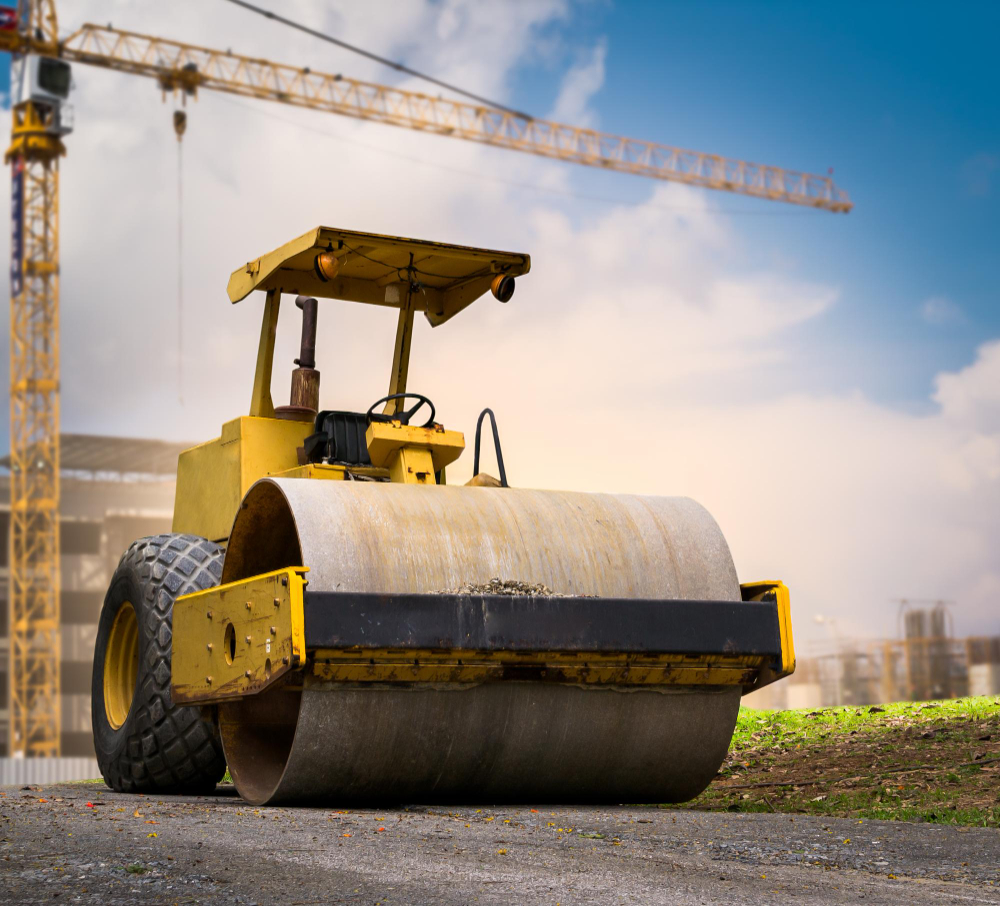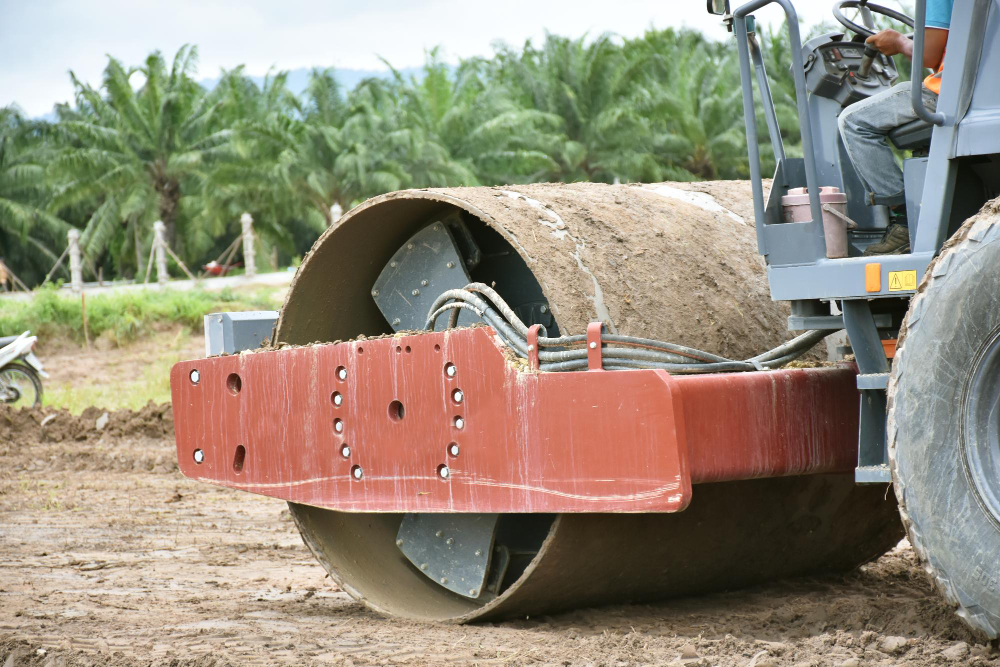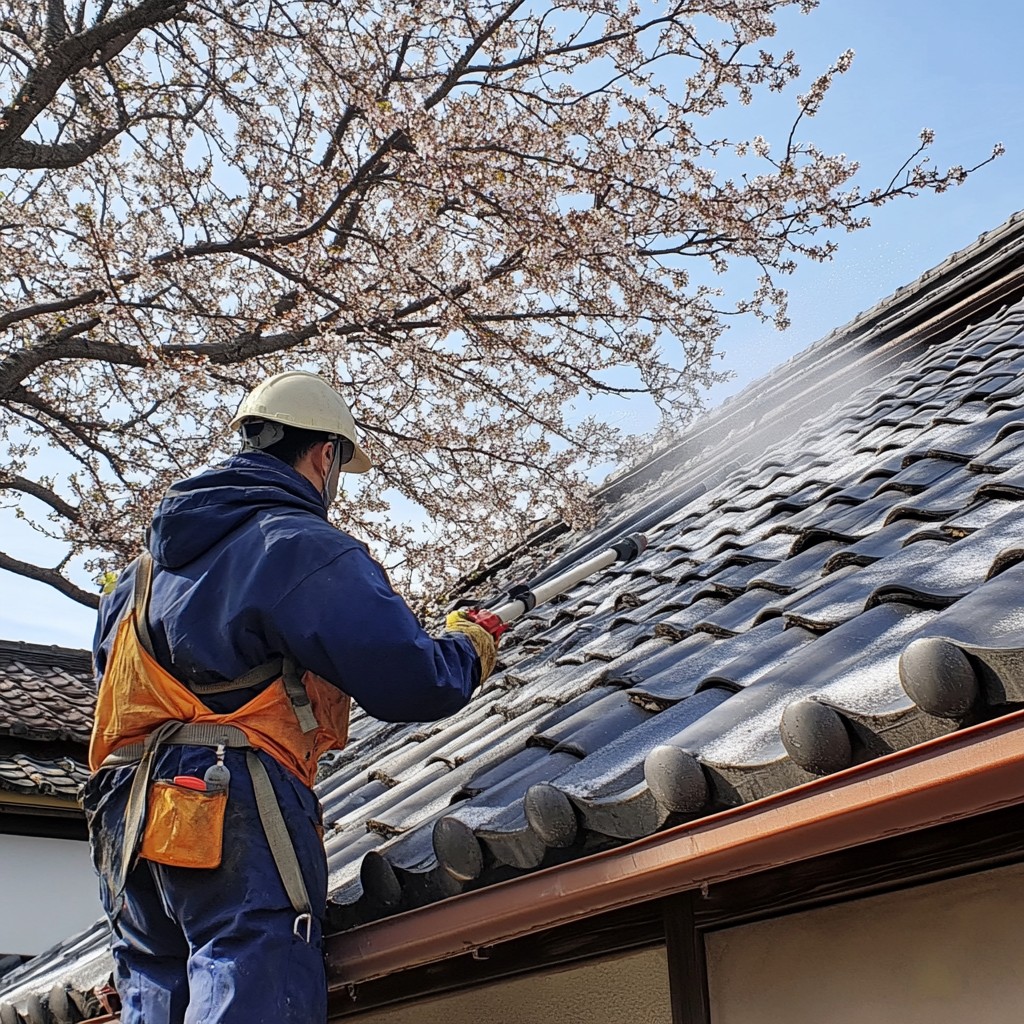Last updated on
Compactors are machines often used in construction to reduce the size of materials through compaction. Their primary role is to flatten and stabilize the ground, creating a firm foundation that is less likely to settle or shift in the future.
Different types of compactors are available, with plate compactors being more suitable for smaller areas and ride-on rollers better for larger surfaces.
Construction projects often require the compaction of materials such as soil, asphalt, and refuse.
Contractors can use a compactor to ensure that structures, roads, and waste disposal sites are stable and long-lasting. When choosing a compactor, contractors will consider the specific needs of the job, with an emphasis on efficiency and effective material handling.
It’s crucial to operate compactors safely and in adherence to environmental regulations. These machines are powerful and can be dangerous if not used correctly.
However, when used properly, they are an essential tool in the construction industry, helping to create safe and stable structures.
Types of Compactors

It is important to understand the different types of compactors available when selecting the right equipment for a construction project. Each compactor type has a specific purpose in shaping the ground to meet building requirements.
Let’s explore the common compactors that make construction efficient and effective.
Smooth Drum Compactors
Smooth drum compactors are essential for flattening surfaces such as roads and pavements. They use a smooth steel drum to compress soil and gravel, consolidating materials with their weight and vibration to form a solid base for construction. Contractors often look for used compactors for sale to reduce project costs.
Padfoot Compactors
Padfoot compactors are particularly effective in managing cohesive soils like clay. Their drums have protrusions, allowing them to knead and compact material more efficiently.
With the ability to exert higher pressure, these machines assist in creating stable earth for support structures. Used compactors for sale often include Padfoot models due to their popularity in specialized construction tasks.
Pneumatic Compactors
Pneumatic compactors, also known as rubber tire compactors, offer a versatile compaction solution. Unlike drum-based compactors, they use several rubber tires to compact soil, asphalt, and other materials.
This ensures more uniform compaction, which is essential for foundations and roadways. Their flexibility makes them a valuable asset on diverse construction sites.
Common Applications in Construction
Construction sites utilize compactors to create a stable and solid foundation. Compactors are heavy machines that remove air from soil and waste. This provides a strong base for construction projects. Below are some of the essential uses of compactors in construction.
Road Construction
Road construction projects heavily depend on compactors to prepare a stable base, which is crucial for road durability. Compactors play a significant role in road-making stages by pressing down materials to increase their density. They also lay down asphalt and provide a smooth road surface.
Landfill Construction
Compactors reduce the size of waste materials in landfills, helping to manage space efficiently. By pressing down trash, more waste fits in less space, which is essential to keeping landfills organized and safe.
Foundation Compaction
Before the building starts, compactors ensure the foundation is solid. A well-compacted base prevents future problems with the building. This compaction must meet specific standards. It supports structures like homes, office buildings, and bridges.
Benefits of Using a Compactor

Construction projects often require the use of heavy machinery. Compactors play a vital role in these scenarios, thoroughly preparing the ground for various construction tasks. Despite its importance, the humble compactor is often overlooked, despite its potential to improve the efficiency and effectiveness of construction processes significantly.
Improved Soil Stability
Compactors are paramount in boosting soil stability. Properly compacted soil provides a strong foundation, crucial for any construction project. This machine evenly distributes the pressure, reducing the chances of soil settlement and ensuring a level surface that stands the test of time.
Increased Density
The force applied by compactors increases the soil’s density, which is fundamental for load-bearing projects. With increased density, the soil becomes less prone to erosion and swelling, resulting in a firmer, more durable construction base suitable for buildings, roads, and bridges.
Time and Cost Efficiency
Time is money in the world of construction. Compactors significantly speed up the preparation process. They reduce the workforce needed and limit the hours spent on soil compaction.
This efficient use of time translates to cost reductions—a significant advantage in large-scale projects.
Tips for Using a Compactor Safely
Operating a compactor demands attention to safety details. Here are tips for safe compaction at construction sites.
Perform Equipment Inspection
Start with a thorough check of the compactor. Look for any signs of wear or damage before use. Check the fluid levels and ensure all parts function correctly. Always refer to the operator’s manual for specific inspection guidelines.
Wear Appropriate Protective Gear
Personal protection is a must. Workers should wear hard hats, safety glasses, and steel-toed boots. Ear protection is vital due to the noise from compacting operations. High-visibility vests help keep workers seen.
Operate on Stable Ground
Ensure that the ground is solid and stable. Soft or uneven terrain can cause compaction equipment to tip over. Check the area for holes or obstacles before starting.
Compactor Safety Checklist
| Checklist Item | Description | Status (Good/Bad) |
| Equipment Check | Inspection of the compactor | Good |
| Protective Gear | Correct gear worn | Good |
| Ground Stability | Ground checked for operation | Good |
Frequently Asked Questions about Compactor and How It Is Used in Construction
What Is a Compactor in Construction?
A compactor is construction equipment used to compress soil, gravel, concrete, or asphalt. It increases material density and stability, essential for foundational and paving tasks.
Types of Compactors Used on Sites?
Compactors come in various types, including plate compactors, vibratory rollers, and tampers. Each type serves different compacting needs for soil, asphalt, or smaller spaces.
Benefits of Using a Compactor?
Using a compactor offers increased load-bearing capacity and stability of the ground. It prevents future settlement and ensures a solid foundation for construction projects.
How to Choose the Right Compactor?
Choose a compactor based on the job’s size, the material type, and the area’s compaction requirements. Consult with equipment specialists to match the right model to your needs.
The Takeaway
Compactors are indispensable equipment in the construction industry, providing stability and streamlining processes.
Constructors must understand the different types and their functions to achieve efficiency and cost-effectiveness.
These machines are essential tools that lay the foundation for the durability of structures and smooth surfaces.
Table of Contents




